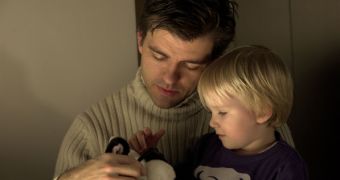University of Newcastle Psychologist Daniel Nettle conducted a study on more than 100,000 children, in an attempt to determine exactly how a father's involvement in raising the children influences the little ones during their early teen years. The paper, published in the November 28 issue of the journal Evolution and Human Behavior, shows that, at age 11, children who benefited from more fatherly love scored better IQ results than their peers.
"It's not about having dad around, it's about what kind of dad he is," argues Nettle, who used data from the UK National Child Development Study, which virtually traces the life of every kid born in the country between March 3rd and 9th, 1958. During his investigation, the researcher asked mothers to rate the fathers' involvement levels with their children, with grades ranging from "inapplicable" to "equal to the mother."
Later examination revealed that the level of financing that came into the homes also had a very distinct role in the upbringing of the children, especially if they were boys. Nettle hypothesizes that this must be related to the difficulties that boys come across while moving upwards on the social ladder, which is why they benefit from more attention coming from the father than girls do.
It could be that a higher standard of living, coupled with an active interest on the part of the father in the life of the children, could make for a very harmonious development, one that could culminate with the kid, regardless of gender, being way smarter than its peers at any given age.
"This is not half a point, this is a few points of IQ, on average," says Nettle, referring to the readings he and his team recorded after viewing the tests that the children took when they turned 11. Usually, in other tests, half a point in an IQ test is a fairly wide variation, especially if the test is conducted on a large number of children. Proportionally, a few points means that there is definitely an outside factor involved, and this time, that factor was fatherly love.

 14 DAY TRIAL //
14 DAY TRIAL //